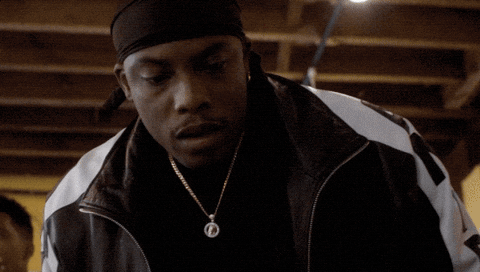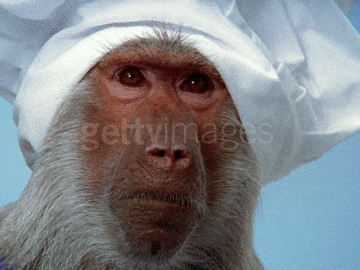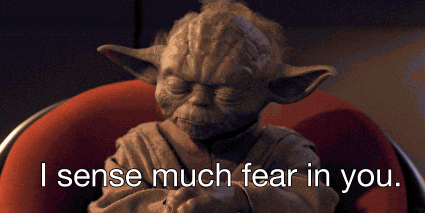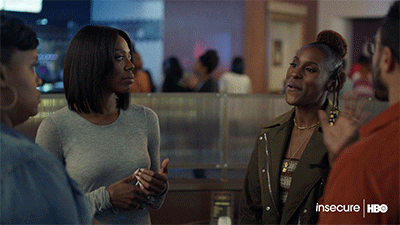Google Play or Pay
Also in this edition: NEWGEN Trademark Battle; Getty Images takes on Stability AI
Good evening! ✨
After a brief pause to recharge our legal batteries, The Inventive Brief returns with your favorite dose of IP drama, court intrigue, and innovation insight. This week, from Google’s courtroom headaches to Getty’s AI copyright crusade, we unpack the decisions that could reshape digital rights, creative industries, and the rules of the (tech) game.
Let’s dive right in. 🤿
1. 💸 “Google Play or Pay”: Madras HC Dismisses Google’s Application for Rejection of Plaint
By Antara Balaji
The Madras High Court dismissed Google's application seeking rejection of Testbook's plaint challenging Google's 15-30% service fees, ruling that civil courts can hear contractual disputes even when Competition Commission has parallel jurisdiction over market dominance issues.
Contractual claims allowed to proceed including allegations that Google waived its right to charge fees (by not enforcing them for years to build network effect), unilaterally changed the contract scope, and violated provisions of Indian Contract Act on undue influence and restraint of trade.
Two different courts, two different jobs - Competition Commission looks at whether Google dominates the whole market, while civil courts decide contract disputes between two specific parties, even when one party has superior bargaining power.
Payment Systems Act does not bar suit as PSS Act lacks comprehensive mechanism to resolve contractual validity disputes and does not expressly bar civil court jurisdiction over such matters.
Why it matters: This ruling establishes that platform operators cannot escape contract law by claiming Competition Commission has exclusive jurisdiction. While the Competition Commission examines market-wide problems, civil courts can still hear cases about unfair contract terms, broken promises, and undue influence—even with digital platforms.
2. 🆕 From Partners to Rivals: Delhi High Court Upholds Injunction in NEWGEN Trademark Battle
By Antara Balaji
The Delhi High Court dismissed appeals by Newgen IT Technologies challenging an interim injunction that prevents them from using "NEWGEN IT" and similar marks, ruling that the marks are strikingly similar to Newgen Software Technologies' registered "NEWGEN" trademarks.
The Court found it significant that Newgen IT, formerly VCare InfoTech had adopted the trade name immediately after their partnership with Newgen Software was terminated in September 2024. The terms of use of the trademarks under the erstwhile contract were clear in so far as the fact that Newgen Software was the absolute owner of the “NEWGEN” trademarks.
Defence of acquiescence was rejected by the court since the original owner of the marks, Newgen Software didn't sit idle after partnership termination - they promptly issued cease-and-desist notices, filed rectification applications with Ministry of Corporate Affairs, and notified SEBI about the trademark issue.
Allegations of suppression levelled by Newgen IT were dismissed as the court found that even if certain facts (like prior business communications or third-party usage of "Newgen") had been disclosed, they wouldn't have materially affected the interim injunction order.
Failure to establish transborder reputation - Court noted that using a mark in one jurisdiction (Singapore) doesn't automatically create goodwill in another (India), and Newgen IT failed to establish transborder reputation for their mark.
Why it matters: This judgment reinforces that companies cannot exploit partnership relationships to later adopt deceptively similar trademarks. The decision establishes that when business partners part ways, the party with the prior use can obtain injunctions even against former partners who claim acquiescence based on previous cooperation.
3. 🎨 Picture Perfect Pandemonium: Getty Images Takes Stability AI to Court in Landmark UK Trial
By Karthikeyen S.
In a case that could redefine the copyright contours of AI, Getty Images has dragged Stability AI into court, alleging that the company scraped over 12 million of its images to train the generative AI engine, Stable Diffusion.
The UK trial, now underway in London’s High Court, marks the first major judicial test of copyright rules in the generative AI age.
Getty’s argument? That this was not “fair dealing” but “brazen infringement”—with some AI-generated images even replicating Getty’s watermark. Stability AI, for its part, claimed the training happened in the US and sought dismissal on jurisdictional grounds. The court wasn’t convinced.
The smoking gun evidence: Getty points to instances where Stability's AI system actually generated images bearing Getty's distinctive watermark, demonstrating both the extent of the copying and potential trademark infringement that could confuse consumers.
Stability's jurisdictional defense: The company applied for summary judgment, with CEO Emad Mostaque asserting that no UK-based employees worked on developing or training Stable Diffusion, and that all computing power was accessed via the United States. However, Mrs Justice Smith ruled there was insufficient certainty to grant summary judgment.
Broader defense strategy: Stability AI appears to rely on fair dealing exceptions under UK copyright law, particularly arguing that their use constitutes legitimate research and development.
Why it matters: This case represents the ultimate clash between Silicon Valley's "move fast and break things" mentality and traditional intellectual property protection. If Getty prevails, it could establish that fair dealing exceptions won't provide blanket protection for commercial AI training, potentially requiring the entire industry to fundamentally reconsider their data acquisition strategies.
🔎 Between the Lines: Getty Images has essentially told Stability AI: "Say cheese—to our lawyers!" What makes this particularly fascinating is the watermark evidence. When your AI is so thorough in its copying that it reproduces the very watermarks designed to prevent unauthorized use, it's rather like a burglar leaving their business card at the scene. The broader implications extend far beyond this single case—the days of treating the internet as an all-you-can-eat buffet for AI training may be numbered.
4. 🎬 The Force Awakens: Disney and Universal Launch Copyright Death Star Against Midjourney
By Karthikeyen S.
Hollywood’s biggest names—Disney, Marvel, Lucasfilm, and Universal—have joined forces to sue AI image generator Midjourney in what could be the Avengers-style team-up of IP enforcement. The lawsuit, filed in Los Angeles federal court, alleges Midjourney trained its models on protected content and produced near-replicas of iconic characters from Darth Vader to Shrek.
What makes this lawsuit explosive is the studios’ claim that Midjourney can prevent this—but simply won’t. They allege the company actively markets its infringing capabilities on its “Explore” page and ignored multiple cease-and-desist notices.
📌 Why it matters
This isn’t just a copyright case; it’s a referendum on whether AI companies must deploy their technical abilities to prevent infringement, not just enable it. For the entertainment industry, it’s a pushback against creative theft disguised as innovation.
5. 🥊 Trademark Tussle Gets Tactical: UNDER ARMOUR Wins Appeal Against “AERO ARMOUR”
By Saai Sudharsan Sathiyamoorthy
The Delhi High Court has handed a notable win to American sportswear giant Under Armour, setting aside a prior refusal of injunction against a rival brand “AERO ARMOUR.” The court held that the mark “AERO ARMOUR” was deceptively similar to Under Armour’s registered brand, especially as both were used for apparel under the same class.
The case took a turn when the Single Judge initially dismissed Under Armour’s plea, reasoning that “ARMOUR” was too generic and that the prefixes “UNDER” and “AERO” created sufficient distinction. But on appeal, the Division Bench found that this approach downplayed the overall visual and phonetic similarity, especially in light of Under Armour’s well-established reputation.
The Bench emphasized that in a market dominated by brand recall, consumers don’t dissect trademarks word by word. It also rejected the argument that casual wear and sportswear serve distinct customer bases, noting both brands operate online and through similar retail spaces, heightening the risk of confusion.
📌 Why it matters
This ruling reinforces the principle that strong, well-known trademarks deserve robust protection—even if competitors use common suffixes or prefixes. It cautions emerging brands against creative plays on famous trademarks, especially when targeting similar markets. For IP watchers, it’s a win for the “global appreciation” test and a reminder that you can’t carve up a mark and claim innocence.
6. ⚖️ Supreme Court Affirms Arbitration in Trademark Dispute
By Saai Sudharsan Sathiyamoorthy
In a ruling that solidifies arbitration's growing presence in IP enforcement, the Supreme Court in K. Mangayarkarasi v. N.J. Sundaresan upheld a referral to arbitration in a trademark dispute, even though the case involved allegations of fraud and one non-signatory.
The plaintiffs had sought to block the use of the “Sri Angannan Biriyani Hotel” trademark, claiming infringement and seeking damages. The defendants pointed to arbitration clauses in earlier assignment deeds, triggering a Section 8 application. The Commercial Court and the Madras High Court both sent the matter to arbitration—and the Supreme Court agreed.
The Court held that trademark disputes arising from contractual arrangements, like assignments, are arbitrable as they deal with rights in personam. Allegations of fraud, it ruled, were not severe enough to fall outside arbitral jurisdiction. And the presence of a non-signatory didn’t derail the clause either—because she claimed rights through the original party.
📌 Why it matters
This judgment delivers a clear message: arbitration can handle IP disputes involving assignments, ownership challenges, and even fraud—so long as the heart of the dispute is contractual. It helps clarify a grey zone where IP meets ADR, and puts to rest the assumption that trademark cases must always go to court.
7. 🧾 Copyright Licensing Just Got Real: Draft Rules Push for Online Payment Reform
By Saai Sudharsan Sathiyamoorthy
In a long-overdue move, the Government of India has proposed amending the Copyright Rules to require all license fees—especially for literary, musical, and sound recordings communicated to the public—to be paid only through a centralized online system.
The draft rules, introduced in June 2025, respond to rising complaints from content creators and users alike about opaque, arbitrary, and unpredictable license demands—most recently brought into sharp focus by the ANI v. Mohak Mangal controversy, where a journalist was slapped with an exorbitant license fee for using a news clip.
Under the proposed changes, even private licensors like IPRS and PPL (whether or not they are registered copyright societies) will be required to adopt transparent, traceable fee collection systems. The intent: eliminate the shadow pricing, undisclosed terms, and coercive licensing that plague media, educational, and commentary content today.
📌 Why it matters
This is India’s first serious step toward democratizing copyright licensing. For creators and commentators, it promises predictability and protection from rent-seeking intermediaries. For rights holders, it offers legitimacy and clarity. In a digital era where a meme can become a lawsuit, clarity on licensing isn't just compliance—it's survival.
This newsletter is published fortnightly.














